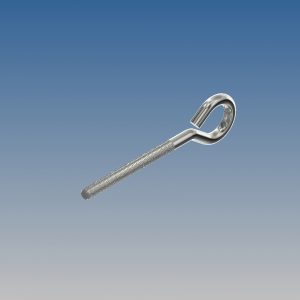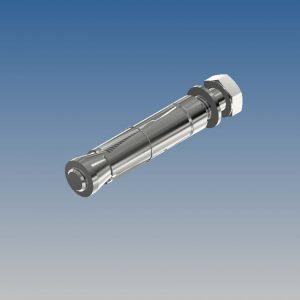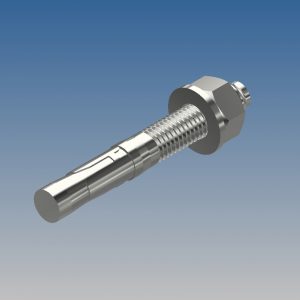Bolts
Bolts are essential mechanical fasteners featuring a threaded shaft, designed to secure two or more components together. Though closely related to screws—another type of mechanical fastener with a threaded shaft—bolts are typically distinguished by their specific usage and design characteristics.
When determining whether a fastener is classified as a bolt or a screw, the key difference lies in its application. A bolt is generally used in conjunction with a nut. It is inserted through aligned holes in the components being joined, and the nut is then tightened onto the bolt’s threaded shaft. This process generates a clamping force, preventing axial movement and securely fastening the parts together. In contrast, a screw typically mates directly with a threaded hole in one of the parts being fastened. It may either cut its own threads or align with pre-existing threads, depending on the design.
Bolts are commonly characterized by having only a portion of their shaft threaded, leaving the rest as a smooth, unthreaded shank. This shank plays a crucial role in maintaining the alignment of the parts being joined, preventing radial movement while also reducing wear and tear on the components due to its smooth surface. The unthreaded shank is particularly important in applications where shear forces are present, as it helps distribute the load more evenly and reduces the risk of bolt failure.
Technically, when a bolt fastens a part to another part with a threaded hole, it functions similarly to a screw. However, the presence of a nut and the method of fastening usually distinguish the two. Bolts often rely on the axial force generated by tightening the nut or bolt head, which creates friction at the threads, keeping the bolt securely in place. To further prevent loosening, additional methods such as locking nuts or thread-locking adhesives can be employed.
Among the various types of bolts, the hex bolt is the most common. It features a hexagonal head, providing flat surfaces for tools to apply torque during fastening. Older designs, such as square-headed bolts, are still used in specific applications where high torque is required, as the square head offers more surface area for spanners.
We offer a wide range of bolts to suit various applications, including:
- Rawl Bolts – Zinc: Ideal for heavy-duty applications where strong anchorage is needed.
- Through Bolts – Zinc: Perfect for securing components in concrete or masonry, offering reliable hold.
- Eyebolts – Bright Zinc Plated: Commonly used for lifting and securing loads, providing a strong and durable attachment point.
These bolts are available in various sizes to meet the specific requirements of your project. Whether you’re working on construction, industrial, or DIY projects, our selection of bolts provides the strength and durability you need for a successful installation.
Showing all 3 results
Showing all 3 results



